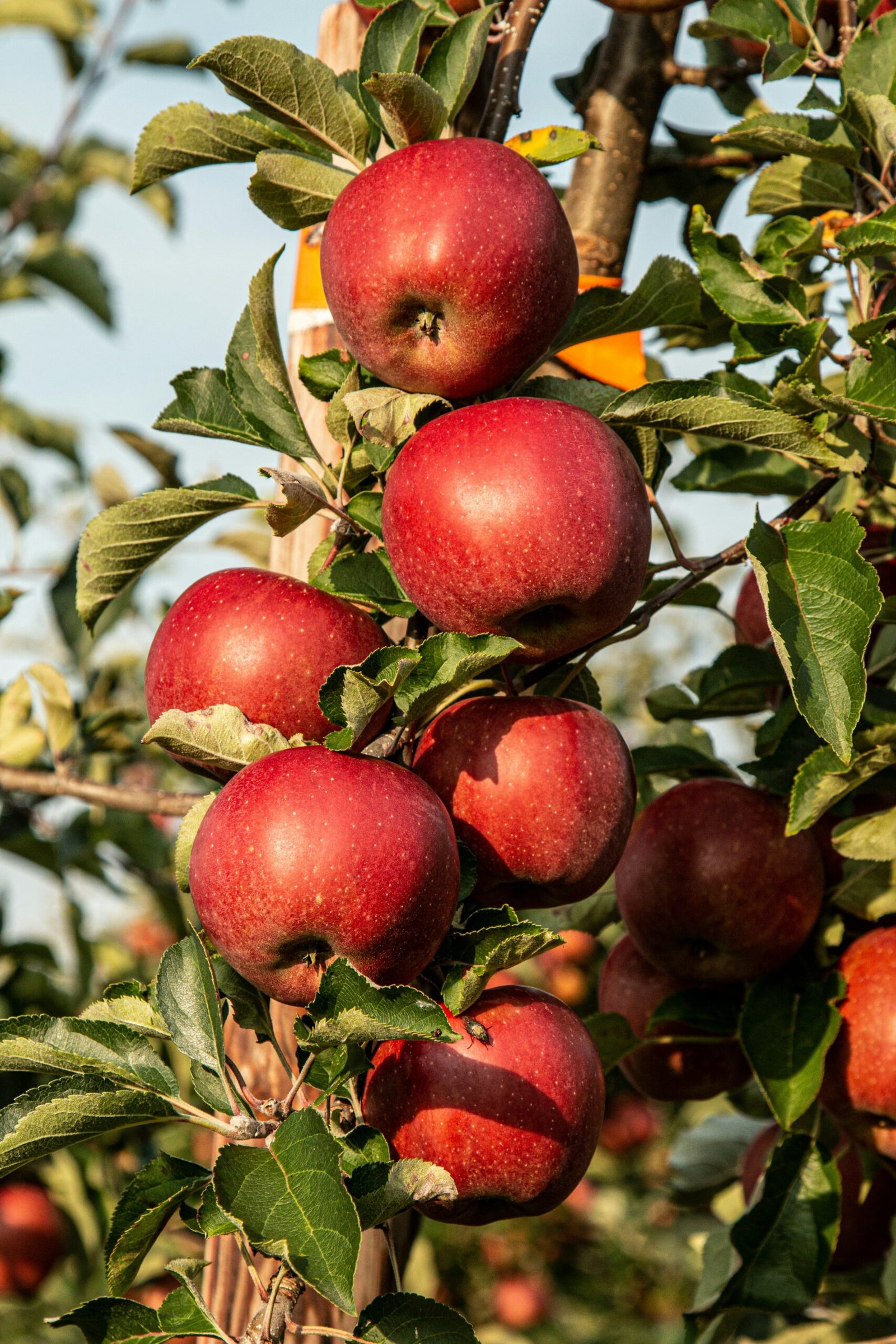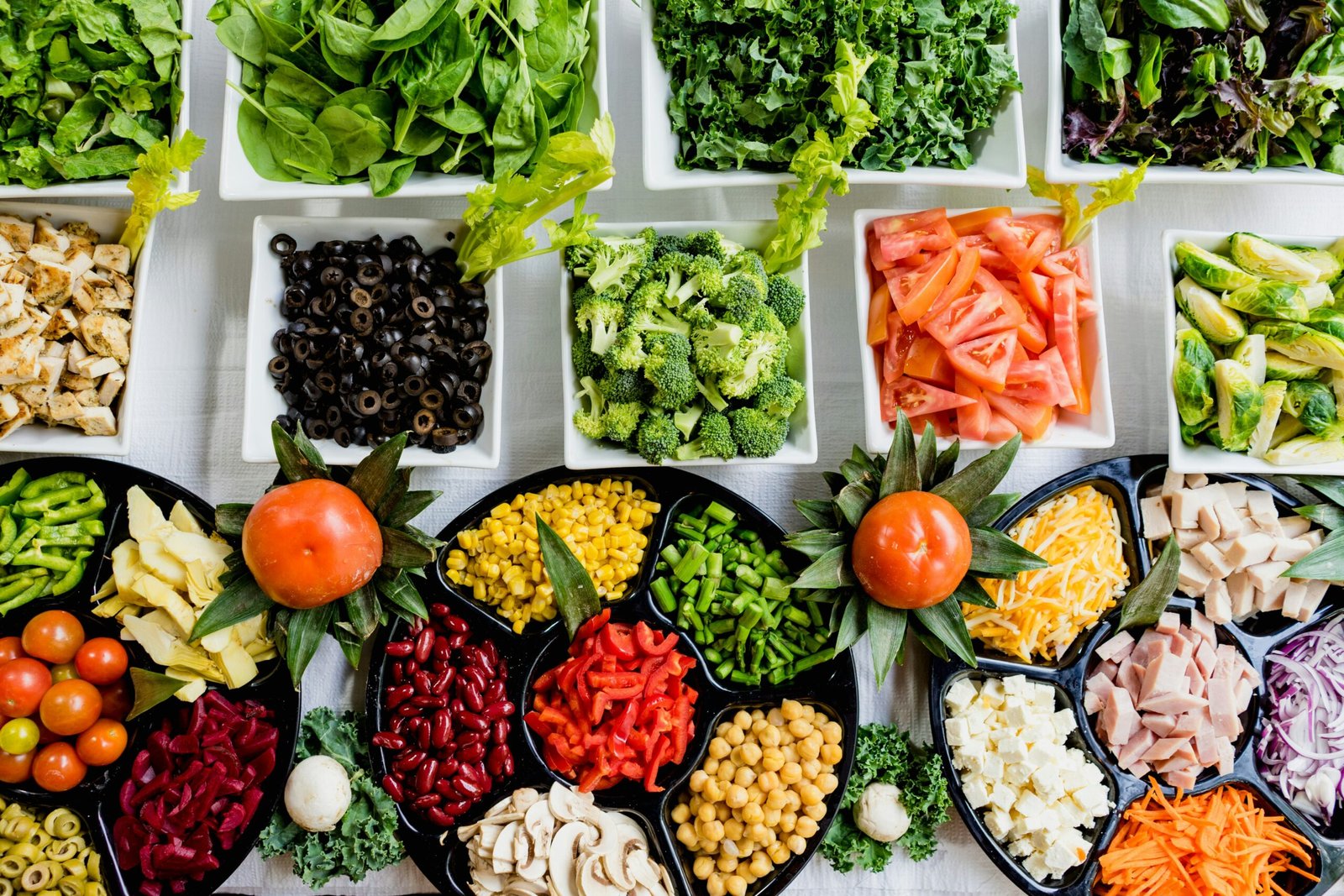One of the great things about this vegetable soup recipe is its versatility. You can use whatever vegetables you have on hand, making it a perfect dish for using up any leftover vegetables in your fridge. Some popular choices include carrots, celery, onions, bell peppers, zucchini, and tomatoes. Not only do these vegetables add vibrant colors to the soup, but they also provide a wide range of vitamins, minerals, and antioxidants.
To make this soup, start by sautéing the onions and garlic in a large pot until they become fragrant and translucent. This will help to release their flavors and create a delicious base for the soup. Next, add in the rest of the vegetables and cook them for a few minutes until they start to soften.
Once the vegetables are slightly tender, it’s time to add the broth. You can use vegetable broth for a completely vegetarian soup, or you can opt for chicken or beef broth for a heartier flavor. Pour in enough broth to cover the vegetables, and then bring the soup to a boil. Reduce the heat and let it simmer for about 20-30 minutes, or until the vegetables are fully cooked.
Now comes the fun part – seasoning the soup! You can get creative here and add your favorite herbs and spices. Some popular choices include thyme, rosemary, bay leaves, oregano, and parsley. Don’t forget to season with salt and pepper to taste. Let the soup simmer for a few more minutes to allow the flavors to meld together.
Once the soup is ready, you can serve it as is or blend it for a smoother consistency. If you prefer a chunky soup, simply ladle it into bowls and garnish with some fresh herbs. For a creamier texture, use an immersion blender or a regular blender to puree the soup until smooth. This will give it a velvety texture that is sure to impress.
Not only is this vegetable soup recipe delicious and nutritious, but it is also a great option for meal prep. You can make a big batch of soup and store it in individual containers for easy grab-and-go lunches or dinners throughout the week. Simply reheat the soup in the microwave or on the stovetop for a quick and satisfying meal.
So the next time you’re in need of a comforting and healthy meal, give this vegetable soup recipe a try. It’s a simple and versatile dish that is sure to please everyone at the table. Plus, with all the nutritious vegetables packed into each bowl, you can feel good about nourishing your body with every spoonful.
Ingredients
- 6 large green onions
- 2 green peppers
- 1 or 2 cans of tomatoes (diced or whole)
- 3 carrots
- 1 container (10 oz. or so) mushrooms
- 1 bunch of celery
- Half a head of cabbage
- 1 package Lipton soup mix
- 1 or 2 cubes of bouillon (optional)
- 1 48oz can V8 juice (optional)
- Season to taste with salt, pepper, parsley, curry, garlic powder, etc.
- 1 pound of lean ground beef
- 1 cup of cooked rice
- 2 cloves of garlic, minced
- 1 tablespoon of olive oil
- 1 teaspoon of paprika
- 1/2 teaspoon of cumin
- 1/4 teaspoon of cayenne pepper
- 1/4 teaspoon of oregano
Now that we have listed all the necessary ingredients for this recipe, let’s move on to the preparation steps. This recipe is for a delicious and hearty vegetable soup with the addition of ground beef and rice. It’s a perfect dish for those cold winter nights or when you’re in need of a comforting meal.
To start, heat the olive oil in a large pot over medium heat. Add the minced garlic and sauté until fragrant, about 1 minute. Next, add the ground beef to the pot and cook until browned, breaking it up into smaller pieces with a spoon.
Once the beef is cooked, add the green onions, green peppers, carrots, mushrooms, celery, and cabbage to the pot. Stir everything together and let it cook for a few minutes until the vegetables start to soften.
Now it’s time to add the tomatoes, either diced or whole, along with their juices. If you prefer a chunkier soup, use whole tomatoes and break them up with a spoon while they cook. If you like a smoother consistency, opt for diced tomatoes.
At this point, you can also add the Lipton soup mix and bouillon cubes if you’re using them. These will enhance the flavor of the soup and add some depth. If you want a richer taste, you can also pour in the can of V8 juice.
To season the soup, use a combination of salt, pepper, parsley, curry, garlic powder, and any other spices you prefer. Adjust the amounts according to your taste preferences. If you like it spicy, add a bit more cayenne pepper or some hot sauce.
Finally, add the cooked rice to the pot and stir everything together. Let the soup simmer for about 20-30 minutes to allow the flavors to meld together and the vegetables to become tender.
Serve the vegetable soup hot, garnished with some fresh parsley or grated cheese if desired. This recipe makes a large batch, so you can enjoy it for several days or freeze the leftovers for future meals. It’s a versatile and nutritious dish that is sure to satisfy your cravings. To make this vegetable soup even heartier and more filling, you can add some protein-rich ingredients. Consider adding a can of drained and rinsed kidney beans or chickpeas to the pot. These legumes will not only provide a good amount of protein but also add a nice texture to the soup. Another option is to include some cooked diced chicken or turkey. This will give the soup a meaty flavor and make it a complete meal on its own. If you prefer seafood, you can add some shrimp or fish fillets to the pot during the last few minutes of cooking. The seafood will cook quickly in the hot soup and add a delicious taste to the overall dish. Additionally, for a creamier consistency, you can stir in a cup of coconut milk or heavy cream towards the end of the cooking process. This will give the soup a rich and velvety texture. Don’t forget to adjust the seasonings accordingly if you decide to add these ingredients. Serve the soup hot with a side of crusty bread or a fresh green salad for a satisfying and nutritious meal.
Why Vegetable Soup?
Vegetable soup is not only delicious, but it also offers numerous health benefits. By incorporating a variety of vegetables into your diet, you can ensure that you are getting a wide range of essential nutrients. Here are some reasons why vegetable soup should be a regular part of your meal plan:
- Rich in vitamins and minerals: Vegetable soup is packed with vitamins and minerals that are essential for maintaining good health. Different vegetables provide different nutrients, so by including a variety of vegetables in your soup, you can ensure that you are getting a well-rounded nutritional boost.
- High in fiber: Vegetables are a great source of dietary fiber, and when they are cooked in a soup, the fiber content is retained. Fiber is important for maintaining a healthy digestive system, preventing constipation, and promoting a feeling of fullness, which can help with weight management.
- Low in calories: Vegetable soup is typically low in calories, making it a great option for those who are trying to lose weight or maintain a healthy weight. By replacing higher-calorie meals with a bowl of vegetable soup, you can reduce your overall calorie intake without sacrificing taste or nutrition.
- Hydrating: Soups, including vegetable soup, are a great way to stay hydrated. The high water content in soups can help to replenish fluids in the body, especially during hot weather or after intense physical activity.
- Boosts immune system: Many vegetables used in vegetable soup, such as carrots, tomatoes, and bell peppers, are rich in antioxidants and other immune-boosting compounds. Regularly consuming vegetable soup can help strengthen your immune system and protect against common illnesses.
- Easy to customize: Vegetable soup is incredibly versatile and can be customized to suit your taste preferences and dietary needs. You can add different herbs, spices, or even protein sources like beans or tofu to make the soup more flavorful and satisfying.
Overall, vegetable soup is a nutritious and delicious addition to any meal plan. Whether you enjoy it as a starter, a main course, or a side dish, vegetable soup provides a wide range of health benefits that can contribute to your overall well-being.
1. Nutrient-Rich
Vegetables are packed with essential vitamins, minerals, and antioxidants that are vital for maintaining good health. By including a variety of vegetables in your soup, you can ensure that you are getting a wide range of these nutrients. Carrots, for example, are rich in vitamin A, while green peppers are a great source of vitamin C.
In addition to these vitamins, vegetables also provide important minerals such as potassium, magnesium, and calcium. Potassium is essential for maintaining healthy blood pressure levels, while magnesium plays a key role in muscle and nerve function. Calcium, on the other hand, is crucial for strong bones and teeth.
Furthermore, vegetables are rich in antioxidants, which help protect the body against harmful free radicals. Free radicals are unstable molecules that can cause damage to cells and contribute to the development of chronic diseases, such as heart disease and cancer. Antioxidants, such as vitamin C and beta-carotene, neutralize these free radicals and reduce the risk of oxidative stress.
By incorporating a variety of vegetables into your soup, you can ensure that you are getting a diverse range of these essential nutrients. For example, adding leafy greens like spinach or kale can provide an excellent source of folate, a B-vitamin important for cell growth and development. Bell peppers, on the other hand, are rich in vitamin E, which is known for its antioxidant properties.
Moreover, vegetables are low in calories and high in fiber, making them an excellent choice for weight management. The high fiber content helps to keep you feeling fuller for longer, reducing the likelihood of overeating. Additionally, the low calorie content means that you can enjoy a generous portion of soup without worrying about excessive calorie intake.
In conclusion, vegetables are a nutrient-rich addition to any soup. They provide a wide range of essential vitamins, minerals, and antioxidants that are crucial for maintaining good health. By incorporating a variety of vegetables into your soup, you can ensure that you are getting a diverse array of these nutrients, promoting overall well-being and supporting optimal health.
2. High in Fiber
Vegetable soup is an excellent source of dietary fiber, which is important for a healthy digestive system. Fiber helps to regulate bowel movements, prevent constipation, and promote a feeling of fullness, which can aid in weight management.
Furthermore, consuming a diet rich in fiber has been linked to a reduced risk of various chronic diseases. Soluble fiber, found in vegetables like carrots, peas, and beans, can help lower cholesterol levels by binding to bile acids in the digestive system and preventing their reabsorption. This process forces the liver to use cholesterol from the bloodstream to produce more bile acids, thereby reducing overall cholesterol levels.
Additionally, the insoluble fiber present in vegetable soup plays a crucial role in maintaining a healthy digestive tract. It adds bulk to the stool, making it easier to pass through the intestines and preventing conditions such as diverticulosis and hemorrhoids. Moreover, a high-fiber diet has been associated with a decreased risk of developing colon cancer.
Not only does fiber benefit the digestive system, but it also contributes to overall well-being. It helps regulate blood sugar levels by slowing down the absorption of sugar, preventing sudden spikes and crashes. This is particularly important for individuals with diabetes or those at risk of developing the condition.
Moreover, fiber-rich foods like vegetable soup can aid in weight management. Since fiber adds volume to meals without adding many calories, it can help create a sense of fullness and reduce overall calorie intake. This can be particularly beneficial for individuals looking to lose weight or maintain a healthy weight.
In conclusion, vegetable soup’s high fiber content makes it a valuable addition to a balanced diet. Not only does it support a healthy digestive system by preventing constipation and regulating bowel movements, but it also offers a range of other health benefits. From reducing the risk of chronic diseases to aiding in weight management, fiber is an essential nutrient that should not be overlooked. So, next time you enjoy a warm bowl of vegetable soup, savor its delicious flavors and nourish your body with its abundance of fiber.
3. Low in Calories
Compared to many other types of soup, vegetable soup is relatively low in calories. This makes it a great option for those who are watching their calorie intake or trying to lose weight. You can enjoy a satisfying bowl of vegetable soup without worrying about excessive calorie consumption.
Furthermore, vegetable soup is typically made with a variety of low-calorie vegetables such as carrots, celery, tomatoes, and onions. These vegetables are not only packed with essential nutrients but also have a high water content, which adds volume to the soup without adding significant calories.
In fact, research has shown that consuming low-calorie, high-volume foods like vegetable soup can help promote weight loss. The high water and fiber content in the soup can help you feel fuller for longer, reducing the chances of overeating or snacking on unhealthy foods throughout the day.
Moreover, vegetable soup can be easily customized to fit your dietary needs and preferences. You can add your favorite vegetables, herbs, and spices to enhance the flavor without significantly increasing the calorie content. For example, adding a handful of leafy greens like spinach or kale can boost the nutritional value of the soup without adding many calories.
It is important to note that the calorie content of vegetable soup can vary depending on the ingredients and preparation method. If you are concerned about the calorie content, you can use low-sodium broth or opt for homemade vegetable soup, where you have control over the ingredients and portion sizes.
In summary, vegetable soup is a delicious and nutritious option for those looking to maintain a healthy weight or shed a few pounds. Its low-calorie nature, coupled with the abundance of vitamins, minerals, and fiber, make it a satisfying and guilt-free choice. So go ahead and indulge in a warm bowl of vegetable soup, knowing that you are nourishing your body while keeping your calorie intake in check.
4. Hydrating
Many vegetables have a high water content, which means that vegetable soup can help keep you hydrated. Staying hydrated is important for overall health and well-being, as water is necessary for various bodily functions.
When it comes to hydration, it’s not just about drinking water. While water is essential, especially on hot days or during intense physical activity, it’s also important to consume foods that contribute to your daily water intake. This is where vegetable soup comes in handy.
Unlike sugary beverages or caffeinated drinks that can actually dehydrate you, vegetable soup provides a refreshing and hydrating option. The high water content in vegetables like cucumbers, celery, and tomatoes, which are commonly found in vegetable soup, helps replenish your body’s water levels. Additionally, the broth or liquid base of the soup adds to the hydration factor.
Furthermore, staying hydrated is crucial for maintaining proper bodily functions. Water is involved in almost every process that takes place in our bodies, from digestion and nutrient absorption to temperature regulation and waste removal. By consuming vegetable soup, you not only satisfy your hunger but also ensure that your body receives the hydration it needs to function optimally.
Moreover, vegetable soup is a great option for those who struggle to drink enough water throughout the day. Some people find it difficult to meet their daily water intake goals, either due to forgetfulness or simply not enjoying the taste of plain water. By incorporating vegetable soup into your diet, you can increase your water intake without feeling like you’re forcing yourself to drink plain water.
Additionally, vegetable soup is a versatile dish that can be enjoyed in various ways. You can customize it to suit your taste preferences by adding different vegetables, herbs, and spices. Whether you prefer a chunky vegetable soup or a smooth pureed version, there are countless recipes available to suit your culinary preferences.
In conclusion, vegetable soup is not only a delicious and nutritious meal but also a great way to stay hydrated. With its high water content and the numerous health benefits of vegetables, vegetable soup is a fantastic addition to your diet. So next time you’re looking for a hydrating and satisfying meal, consider enjoying a bowl of vegetable soup.
5. Versatile and Customizable
One of the best things about vegetable soup is its versatility. You can customize the recipe to suit your taste preferences and dietary needs. Feel free to add or substitute different vegetables, herbs, and spices to create your own unique version of vegetable soup.
Whether you prefer a chunky vegetable soup with hearty root vegetables like carrots, potatoes, and parsnips, or a lighter broth-based soup filled with vibrant greens like spinach, kale, and zucchini, the possibilities are endless. You can also experiment with different types of broth or stock to enhance the flavor profile of your soup. A rich vegetable broth, a tangy tomato base, or a comforting chicken stock can all add a unique twist to your creation.
Furthermore, vegetable soup can be easily adapted to accommodate various dietary restrictions or preferences. If you follow a vegan or vegetarian diet, simply omit any animal-based ingredients and use vegetable stock instead. On the other hand, if you prefer a heartier soup, you can add protein-rich ingredients like beans, lentils, or tofu to make it more filling.
Additionally, you can play around with the seasonings to create different flavor profiles. For a Mediterranean-inspired soup, you can add herbs like oregano, basil, and thyme, and finish it off with a drizzle of olive oil. If you prefer a spicier kick, you can incorporate chili powder, cumin, and paprika to give your soup a Mexican flair. The possibilities are truly endless when it comes to customizing your vegetable soup.
Moreover, vegetable soup is a great way to use up any leftover vegetables you may have in your refrigerator. Instead of letting them go to waste, simply chop them up and throw them into the pot. This not only helps reduce food waste but also adds a variety of flavors and textures to your soup.
So whether you’re looking for a comforting meal on a cold winter’s day or a light and refreshing dish during the summer, vegetable soup is the perfect choice. Its versatility and customizability make it a go-to option for any occasion. So grab your favorite vegetables, spices, and herbs, and get creative in the kitchen!







